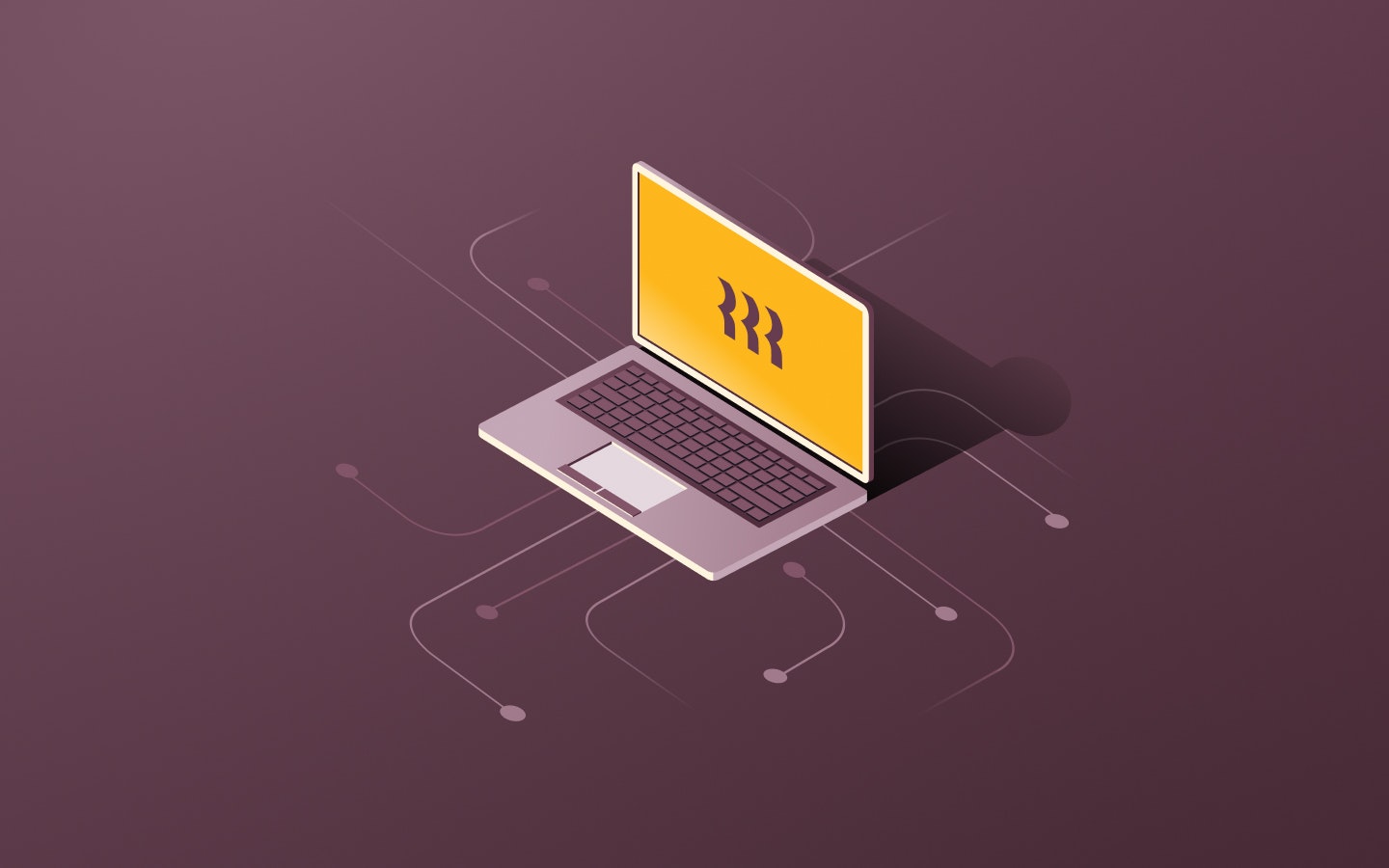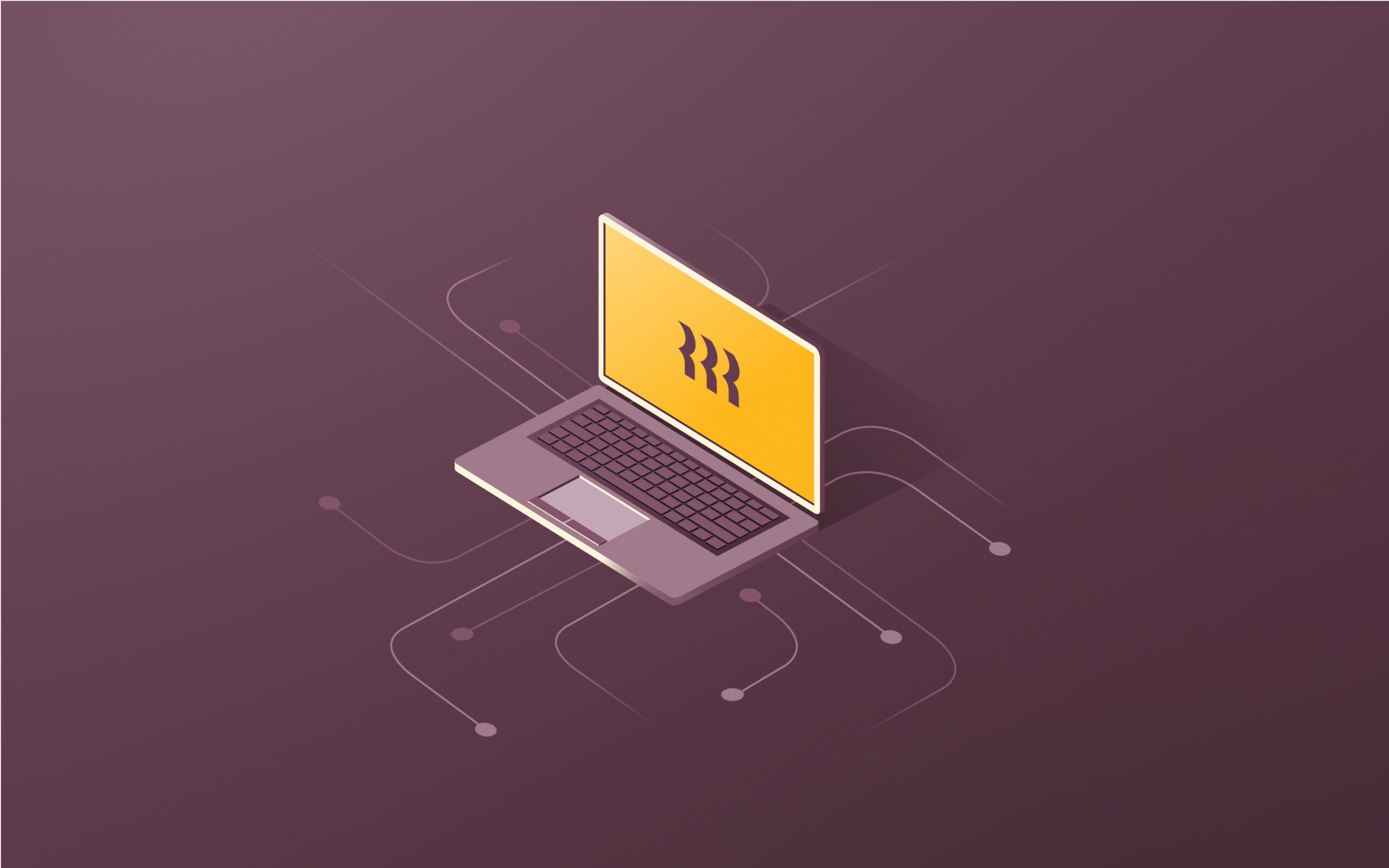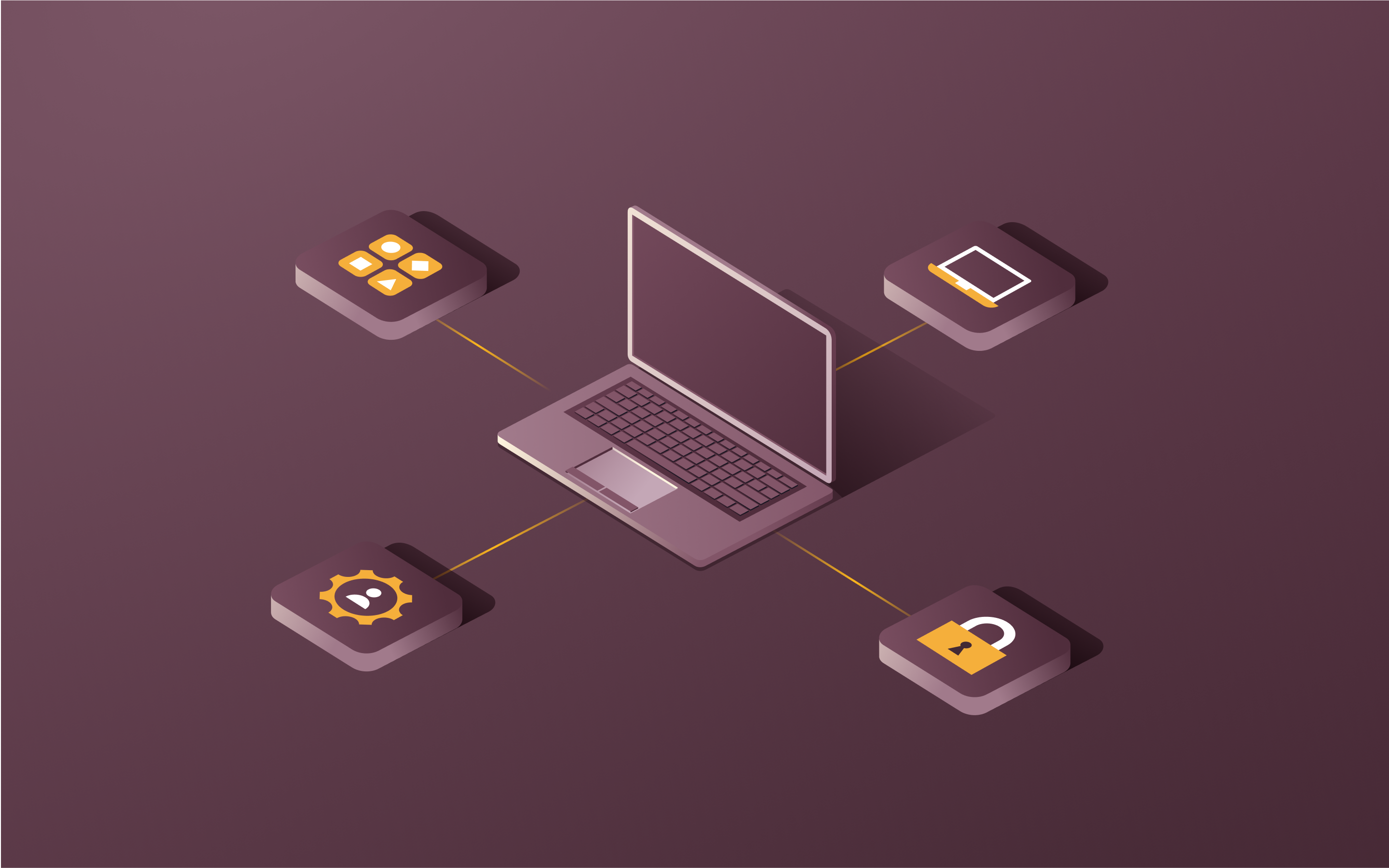IT services and solutions: How small teams can streamline workflows and boost productivity

Key Takeaways
- IT services refer to the application of technical expertise to create, manage, and optimize an organization's IT systems, while IT solutions are targeted packages designed to address specific business challenges.
- Common types of IT services and solutions include managed IT services, cloud services, cybersecurity services, data backup and recovery solutions, and IT consulting.
- When choosing IT solutions, small teams should consider factors such as alignment with business goals, ease of use, integration with existing systems, scalability, security, reliability, support, and cost.
For small businesses, running day-to-day operations isn't easy, especially when it comes to managing IT needs. That’s because they often have limited resources, both in terms of budget and personnel, making it difficult to keep up with the ever-changing tech environment. This is where IT services and solutions come into play, offering a lifeline to small teams looking to enhance their security, ensure compliance, and improve overall efficiency.
But what exactly are IT services and IT solutions? And how do you choose the ones that are right for your small company? Let's dive in and explore these questions.
What are IT services?
At its core, information technology (IT) services refer to the application of business and technical expertise to help organizations create, manage, and optimize their information technology infrastructure and systems. These services are typically delivered by IT experts or specialized service providers who possess the necessary technical expertise and knowledge.
For example: An IT service provider may offer managed network services, which include the setup, configuration, and ongoing monitoring of an organization's computer networks. This service may also include troubleshooting and repair of network issues, as well as regular maintenance tasks like software updates and security patch installation.
Another common IT service is helpdesk support, where technicians assist users with various IT-related issues, such as software problems, hardware malfunctions, or password resets. This service can be provided on site, remotely, or through a combination of both, depending on the organization's needs and preferences.
IT services can also extend to more strategic areas, such as IT consulting and planning. In this case, experienced consultants work closely with an organization's leadership to assess their current technology landscape, identify areas for improvement, and develop a roadmap for future IT investments and initiatives.
What are IT solutions?
While IT services focus on the ongoing delivery of support and expertise, IT solutions are more targeted. An IT solution is often a blend of various components, such as hardware, software, and services, which may come from multiple vendors, designed to address a specific business or technical challenge.
IT companies frequently bundle these elements into comprehensive packages, combining third-party products with their own proprietary software. These packages can also include related services to support the solution.
For example: An IT solution provider might offer a retail management solution that includes point-of-sale hardware, inventory management software, and customer loyalty program integration. This solution may also come with installation, training, and ongoing technical support services to ensure smooth implementation and operation.
Another instance could be a cloud-based collaboration platform for remote teams, which brings together video conferencing software, project management tools, and secure file sharing. The provider may offer migration services to help clients move their existing data and workflows to the new platform, as well as user training and 24/7 customer support.
By offering these all-in-one solutions, IT providers aim to simplify the process of adopting new technologies for their clients, allowing them to focus on their core business objectives while leaving the technical details to the experts.
One important thing to note is that the terms "IT services" and "IT solutions" are often used interchangeably. Many IT service providers also act as IT solution providers and may offer a menu of common solutions or design custom ones for each client. The key difference is the focus on addressing a specific challenge rather than delivering a broader range of IT assistance.
Types of IT services and solutions
The spectrum of IT services and solutions is broad, but some common categories include:
Managed IT services
In this model, an external provider takes on the proactive management and support of a company's IT systems and infrastructure. Managed IT services involve outsourcing specific IT functions to a third-party provider, known as a Managed Services Provider (MSP). MSPs take responsibility for monitoring, maintaining, and supporting an organization's IT infrastructure, allowing businesses to focus on their core competencies.
Managed IT services can include:
- Network security and monitoring
- Server and workstation maintenance
- Help desk support
- Backup and disaster recovery
- Patch management and software updates
Cloud services
The cloud has changed the game for how businesses approach IT. Instead of buying and managing their own hardware and software, companies can now tap into a whole world of computing resources, such as servers, storage, and software applications, over the internet. Cloud services offer scalability, cost-efficiency, and flexibility making them an attractive option for many organizations.
Common cloud service models include:
- Infrastructure as a Service (IaaS): Providers offer virtualized computing resources, such as storage, servers, and networking.
- Platform as a Service (PaaS): Providers deliver a platform for developing, running, and managing applications without the complexity of building and maintaining the underlying infrastructure.
- Software as a Service (SaaS): Providers deliver software applications over the internet, accessible through a web browser, eliminating the need for businesses to install and run applications on their own computers.
Cybersecurity services
With the growing threat of cyber attacks, organizations are increasingly turning to specialized cybersecurity services to protect their digital assets. These services help businesses identify vulnerabilities, detect and respond to threats, and ensure compliance with industry regulations.
Cybersecurity services may include:
- Vulnerability assessments and penetration testing
- Firewall management and intrusion detection
- Endpoint protection and antivirus software
- Mobile device management (MDM) solution
- Security information and event management (SIEM)
- Compliance management and audit support
Data backup and recovery solutions
Data backup and recovery solutions help businesses protect their critical data from loss due to hardware failures, cyber attacks, or natural disasters. These solutions typically involve creating regular backups of a company's data and storing them in a secure off-site location, or external data centers. In the event of data loss, the backup files can be used to restore the lost information. Features of data backup and recovery solutions can include automated backups, off-site storage, and multiple backup options.
IT consulting
For a lot of small teams, it's hard to know if you're making the right calls when it comes to technology. IT consulting services are all about giving strategic advice to help align your IT investments with your business goals. A consultant can assist with tasks like:
- Developing a roadmap for technology adoption and optimization
- Comparing and recommending different hardware, software, and service providers
- Overseeing the implementation of new technologies and processes
- Helping your team develop the skills to use and manage your IT effectively
The benefits of partnering with an IT solution provider
Whether you opt for a single integrated platform or a curated set of point solutions, working with an experienced IT solution provider can bring significant benefits to your small team:
Expertise on demand
IT is a vast and constantly evolving field. Trying to stay on top of the latest technologies and best practices is a full-time job in itself. When you partner with an IT service provider, you gain access to a deep bench of expertise that would be difficult and expensive to build in-house.
Your provider can act as an extension of your team, offering guidance and support on everything from day-to-day operations to long-term strategy. They can help you navigate complex decisions and avoid costly pitfalls.
Scalability and flexibility
One of the biggest advantages of leveraging external IT solutions is the ability to scale up or down as your business needs change. Whether you're ramping up for a new project or entering a period of growth, your IT partner can quickly provision the resources you need.
This is particularly valuable for small teams who may not have the capital to invest in their own infrastructure. With a cloud-based solution, for example, you can access enterprise-grade capabilities on a pay-as-you-go basis, without the hefty upfront costs.
Enhanced security and compliance
Cybersecurity is non-negotiable today but implementing and maintaining effective security controls can be a daunting task for small teams. Partnering with a solution provider who specializes in security services can help you stay protected against the latest threats.
Your provider can also help ensure you're meeting all relevant industry and regulatory compliance standards. They provide guidance on everything from data privacy laws to security frameworks like SOC2, NIST, and ISO 27001. With their expertise, you can have confidence that your business is secure and compliant.
Improved productivity and collaboration
The right IT solutions can have a transformative effect on your team's ability to work efficiently and effectively together. Modern collaboration tools like video conferencing, instant messaging, and file sharing make it easy for teams to communicate and collaborate in real time, regardless of location.
Key considerations for choosing IT solutions
With so many options out there, how do you go about choosing the right IT solutions for your small team? Here are a few key factors to keep in mind:
- Alignment with business goals: Any IT investment should be driven by a clear understanding of your business objectives. What are you trying to achieve, and how can technology help you get there? The best solutions are those that are closely aligned with your strategic priorities.
- Ease of use and adoption: For an IT solution to be effective, your team actually has to use it. Look for solutions that offer an intuitive, user-friendly interface and require minimal training to get up and running. The less friction there is to adoption, the faster you'll start seeing results.
- Integration with existing systems: Chances are, your company already has some IT systems and tools in place. When evaluating new solutions, consider how well they will integrate with your existing environment. Ideally, you want solutions that can seamlessly exchange data and processes with your other key systems.
- Scalability and future-proofing: Your IT needs will inevitably evolve as your business grows and changes. Choosing solutions that are designed to scale with you can save a lot of headaches down the road. Look for providers that offer flexible pricing models and the ability to easily add or remove users and features as needed.
- Security and reliability: Given the critical role that IT plays in modern business, you can't afford downtime or data breaches. When evaluating potential solutions, dig deep into the provider's security practices and track record of reliability. Look for robust backup and disaster recovery capabilities to ensure business continuity.
- Support and service level agreements: No matter how well-designed a solution is, issues will inevitably arise. When they do, you want to have confidence that you can get the support you need to resolve them quickly. Pay close attention to the provider's service level agreements (SLAs) and make sure they align with your expectations for responsiveness and issue resolution.
- Cost and ROI: Finally, of course, there's the question of cost. While it's important to invest in quality IT solutions, you also need to be mindful of your budget. Look for providers that offer transparent, predictable pricing without hidden fees or long-term contracts.
Assess your security posture
Not sure how your security measures up? Rippling provides a quick quiz to help small teams gauge their IT security risks and see where they may have room for improvement.
For small teams who may not have the resources to juggle multiple vendors and solutions, an integrated platform can be a game-changer. These all-in-one solutions bring together a suite of IT support services and tools into a single, easy-to-manage environment.
One powerful example is Rippling. Rippling is a comprehensive HR, IT, and Finance platform that helps small and medium businesses manage their team, secure their business, and automate busy work. From an IT perspective, Rippling enables companies to get all their core security and productivity needs met through one unified interface. By leveraging these types of solutions, your team can spend less time bogged down in low-value tasks and more time focused on strategic initiatives that drive the business forward.
Frequently asked questions
What does an IT officer do?
An IT officer provides technical support to an organization, handling tasks like troubleshooting computer problems, maintaining systems and networks, setting up employee accounts, and testing new technology. They use their knowledge of hardware, software, and IT best practices to keep the company's technology infrastructure running smoothly.
What does IT as a service mean?
IT as a service, or ITaaS, is a model where a company's IT needs, from hardware to software to support, are provided by an outside vendor as a comprehensive, customized package. Rather than maintaining everything in-house, the company pays the provider to deliver the IT services and solutions it needs, with the flexibility to scale up or down.
What are IT management solutions?
IT management solutions refer to the various services that help organizations effectively manage their IT infrastructure and operations. This includes things like data backup, cybersecurity, 24/7 support, strategic consulting, and providing the optimal software and hardware to meet the company's needs. The goal is to streamline IT, reduce costs, and let the company focus on its core business.
Schedule a demo with Rippling IT today
Disclaimer: Rippling and its affiliates do not provide tax, accounting, or legal advice. This material has been prepared for informational purposes only, and is not intended to provide or be relied on for tax, accounting, or legal advice. You should consult your own tax, accounting, and legal advisors before engaging in any related activities or transactions.










